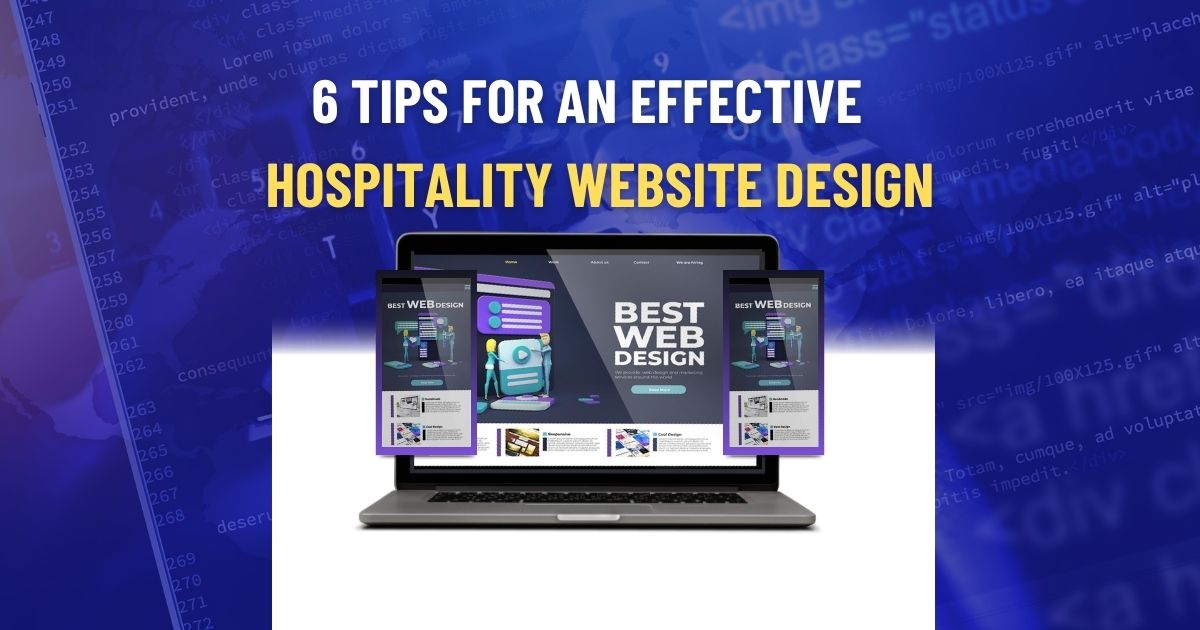Creating a compelling website is essential in the hospitality industry. Your website is often the first interaction potential guests have with your brand, and it needs to make a lasting impression. A well-designed website can significantly boost bookings, enhance user experience, and improve your search engine rankings. In this post, we'll explore six simple tips for great hospitality website design to help you create an engaging online presence.
1. Prioritise User Experience (UX)
Intuitive Navigation
Hospitality web design should be easy to navigate. Guests should be able to find what they're looking for quickly and without frustration. An intuitive menu structure, clear call-to-action buttons, and a well-organised layout are essential. Ensure that your booking engine is prominently displayed and easy to use.
Mobile Responsiveness
With more people using mobile devices to browse the web, it's crucial that your website is fully responsive. This means it should look and function well on all devices, including smartphones and tablets. A responsive design will enhance user experience and improve your hospitality SEO.
2. High-Quality Visuals
Professional Photography
High-quality images can make or break your website. Invest in professional photography that showcases your property in the best light. Include images of your rooms, amenities, and surrounding areas. Remember, visuals are often the first thing visitors notice, so make them count.
Virtual Tours and Videos
Consider adding virtual tours or videos to give potential guests a more immersive experience. This can help set your property apart from the competition and provide a better sense of what guests can expect during their stay.
3. Engaging Content
Clear and Compelling Copy
Your website copy should be clear, concise, and engaging. Highlight the unique selling points of your property and the benefits of staying with you. Use persuasive language to encourage bookings, and include relevant keywords like "hospitality business near me" and "Hotels in Sydney " to improve your search engine rankings.
Local Attractions and Events
Provide information about local attractions, events, and activities. This adds value for your guests and helps with SEO for hospitality by incorporating local keywords and creating opportunities for internal and external linking.
4. Optimise for Search Engines
On-Page SEO
Ensure your website is optimised for search engines. Use meta titles, descriptions, and header tags appropriately. Incorporate relevant keywords into your content, but steer clear of keyword stuffing. Use descriptive URLs and alt text for images to further boost your hospitality SEO.
Speed and Performance
Website speed is crucial for enhancing both user experience and SEO. Ensure your site loads quickly by optimising images, using a reliable hosting service, and minimising the use of heavy scripts. A fast-loading site will keep visitors engaged and improve your search engine rankings.
5. Integrate Social Proof
Guest Reviews and Testimonials
Showcase guest reviews and testimonials prominently on your website. Positive feedback from satisfied guests can build trust and encourage new bookings. Include reviews from platforms like TripAdvisor or Google Reviews to add credibility.
Social Media Integration
Integrate your social media channels into your website. This enables visitors to effortlessly connect with and interact with your brand on social media platforms such as Facebook, Instagram, and Twitter. Social media integration can also help drive traffic to your website and improve your online presence.
6. Easy Booking Process
Simple and Secure Booking Engine
Your booking engine should be simple, secure, and user-friendly. Ensure that the booking process is straightforward, with as few steps as possible. Offer multiple payment options and display your cancellation policy. A seamless booking experience can significantly increase your conversion rates.
Availability and Special Offers
Make sure that your availability calendar is up-to-date and easy to access. Highlight any special offers or packages to entice potential guests. Limited-time offers create a sense of urgency and encourage bookings.
Conclusion
A great hospitality website design is about more than just aesthetics; it's about creating an engaging, user-friendly experience that drives bookings and enhances your brand's online presence. By prioritising UX, using high-quality visuals, creating engaging content, optimising search engines, integrating social proof, and ensuring a seamless booking process, you can create a website that truly stands out in the competitive hospitality industry.
If you're ready to transform your hospitality website and boost your online presence, start implementing these tips today. Remember, your website is often the first impression potential guests have of your property—make it a memorable one!





Comments